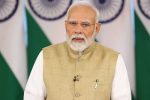John Lewis, a lion of the civil rights movement whose bloody beating by Alabama state troopers in 1965 helped galvanize opposition to racial segregation, and who went on to a long and celebrated career in Congress, died. He was 80.
House Speaker Nancy Pelosi confirmed Lewis” passing late Friday night, calling him “one of the greatest heroes of American history.”
“All of us were humbled to call Congressman Lewis a colleague, and are heartbroken by his passing,” Pelosi said.
“May his memory be an inspiration that moves us all to, in the face of injustice, make ”good trouble, necessary trouble.””
The condolences for Lewis were bipartisan. Senate Majority Leader Mitch McConnell said Lewis was “a pioneering civil rights leader who put his life on the line to fight racism, promote equal rights, and bring our nation into greater alignment with its founding principles. ”
Lewis”s announcement in late December 2019 that he had been diagnosed with advanced pancreatic cancer — “I have never faced a fight quite like the one I have now,” he said — inspired tributes from both sides of the aisle, and an unstated accord that the likely passing of this Atlanta Democrat would represent the end of an era.
The announcement of his death came just hours after the passing of the Rev. C.T. Vivian, another civil rights leader who died early Friday at 95.
Lewis was the youngest and last survivor of the Big Six civil rights activists, a group led by the Rev. Martin Luther King Jr. that had the greatest impact on the movement. He was best known for leading some 600 protesters in the Bloody Sunday march across the Edmund Pettus Bridge in Selma.
At age 25 — walking at the head of the march with his hands tucked in the pockets of his tan overcoat — Lewis was knocked to the ground and beaten by police.
His skull was fractured, and nationally televised images of the brutality forced the country”s attention on racial oppression in the South. Within days, King led more marches in the state, and President Lyndon Johnson soon was pressing Congress to pass the Voting Rights Act.
The bill became law later that year, removing barriers that had barred Blacks from voting.
“He loved this country so much that he risked his life and its blood so that it might live up to its promise,” President Barack Obama said after Lewis” death.
“Early on, he embraced the principles of nonviolent resistance and civil disobedience as the means to bring about real change in this country.” Lewis joined King and four other civil rights leaders in organizing the 1963 March on Washington. He spoke to the vast crowd just before King delivered his epochal “I Have a Dream” speech.
A 23-year-old firebrand, Lewis toned down his intended remarks at the insistence of others, dropping a reference to a “scorched earth” march through the South and scaling back criticisms of President John Kennedy.
It was a potent speech nonetheless, in which he vowed: “By the forces of our demands, our determination and our numbers, we shall splinter the segregated South into a thousand pieces and put them together in an image of God and democracy.”
It was almost immediately, and forever, overshadowed by the words of King, the man who had inspired him to activism.
Lewis was born on Feb. 21, 1940, outside the town of Troy, in Pike County, Alabama. He grew up on his family”s farm and attended segregated public schools.
As a boy, he wanted to be a minister, and practiced his oratory on the family chickens.
Denied a library card because of the color of his skin, he became an avid reader, and could cite obscure historical dates and details even in his later years. He was a teenager when he first heard King preaching on the radio.
They met when Lewis was seeking support to become the first Black student at Alabama”s segregated Troy State University.
He ultimately attended the American Baptist Theological Seminary and Fisk University in Nashville, Tennessee. He began organizing sit-in demonstrations at whites-only lunch counters and volunteering as a Freedom Rider, enduring beatings and arrests while traveling around the South to challenge segregation.
Lewis helped found the Student Nonviolent Coordinating Committee and was named its chairman in 1963, making him one of the Big Six at a tender age.
The others, in addition to King, were Whitney Young of the National Urban League; A. Philip Randolph of the Negro American Labor Council; James L. Farmer Jr., of the Congress of Racial Equality; and Roy Wilkins of the NAACP. All six met at the Roosevelt Hotel in New York to plan and announce the March on Washington.
The huge demonstration galvanized the movement, but success didn”t come quickly. After extensive training in nonviolent protest, Lewis and the Rev. Hosea Williams led demonstrators on a planned march of more than 50 miles (80 kilometers) from Selma to Montgomery, Alabama”s capital, on March 7, 1965.
A phalanx of police blocked their exit from the Selma bridge. Authorities shoved, then swung their truncheons, fired tear gas and charged on horseback, sending many to the hospital and horrifying much of the nation. King returned with thousands, completing the march to Montgomery before the end of the month.
Lewis turned to politics in 1981, when he was elected to the Atlanta City Council.

























Add Comment